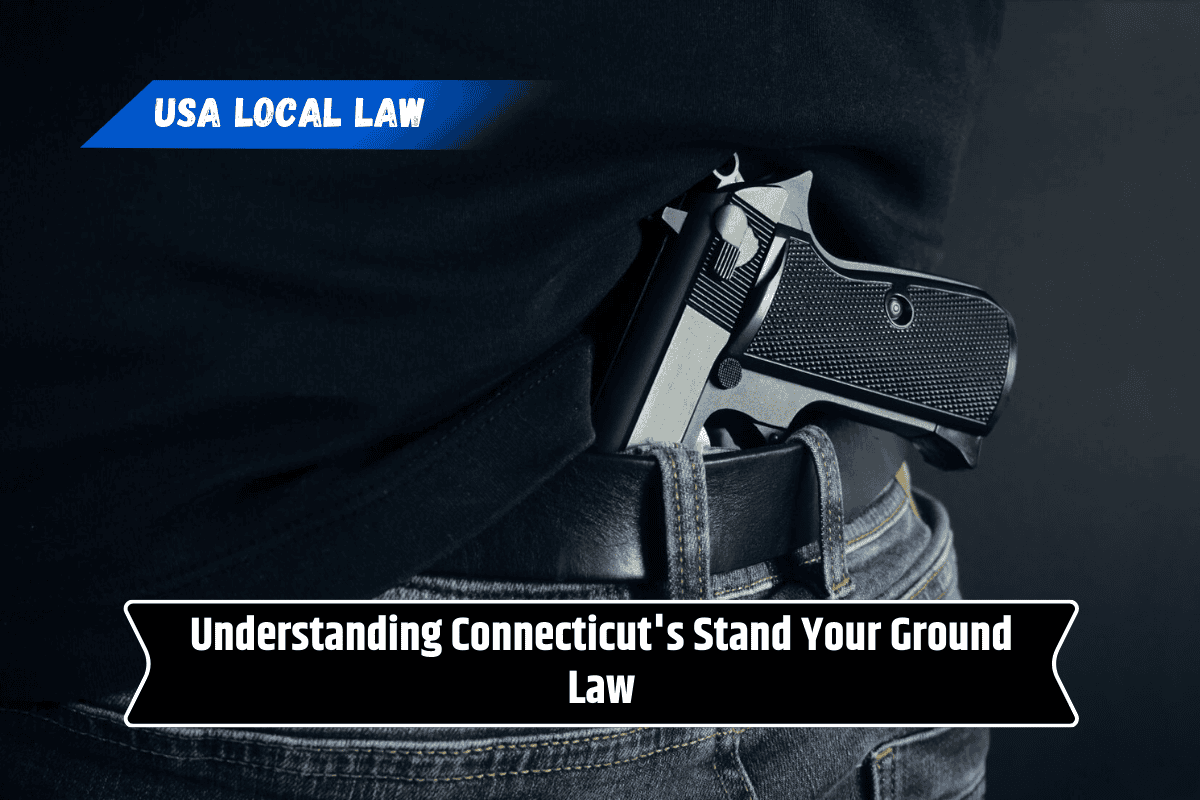When it comes to self-defence laws in the United States, “Stand Your Ground” is a term that often sparks confusion. Each state has its own rules, and Connecticut is no exception. Unlike states like Florida or Texas, which have strong Stand Your Ground laws, Connecticut follows a slightly different approach.
If you’re living in or visiting Connecticut, it’s important to know exactly what your rights are when it comes to defending yourself or others.
What Is a Stand Your Ground Law?
A Stand Your Ground law allows a person to use force—including deadly force—in self-defence without the duty to retreat, even if they could safely avoid the conflict by walking away. This law is common in many states, but Connecticut does not follow this model fully.
Connecticut’s Approach: Duty to Retreat (With Exceptions)
Connecticut follows a “duty to retreat” rule in most public places. This means that if you are attacked, and you can safely avoid the confrontation by retreating, you are legally expected to do so before using force.
However, there is an important exception under Connecticut’s Castle Doctrine. Here’s what the law allows:
In your home, you are not required to retreat. You can use reasonable—even deadly—force if you believe it is necessary to protect yourself or others from death or serious injury.
So, while Connecticut does not have a full Stand Your Ground law, it does allow you to stand your ground in your own home.
When Can You Use Deadly Force in Connecticut?
Under Connecticut law (General Statutes § 53a-19), you can use deadly force only when:
You reasonably believe it is necessary to defend yourself or someone else from deadly physical force or the threat of it.
You are not the initial aggressor, or if you were, you tried to withdraw and the other person continued the threat.
You cannot use deadly force to protect property alone, like a car or a TV. It must be a threat to a person’s safety—not just belongings.
Castle Doctrine: Protecting Your Home
Connecticut law gives special protection to people inside their own homes. This is called the Castle Doctrine, based on the idea that “your home is your castle.”
This means:
You are not required to retreat if an intruder enters your home unlawfully.
You can use deadly force if you believe the intruder is going to seriously hurt or kill you or someone else.
The intruder’s unlawful entry plays a big role in justifying your response.
However, if the person entering your home is legally allowed to be there (like a family member or roommate), the rules may be different, and courts will look more carefully at whether deadly force was justified.
What About Self-Defence in Public Places?
In public, you must try to retreat if it’s safe to do so before using deadly force. This is different from Stand Your Ground states where you can defend yourself without trying to escape first.
But if you cannot safely retreat, then using force is allowed under the law.
For example:
If someone corners you in an alley and threatens your life, and you have no safe way out, you may legally defend yourself—even with deadly force if necessary.
Can You Use Force to Protect Others?
Yes. Connecticut allows the use of reasonable force to protect another person from harm. You must:
Believe that the other person is in danger of serious harm or death.
Only use as much force as needed to stop the threat.
This includes family members, friends, or even strangers—as long as your actions meet the legal standard of reasonableness.
Legal Consequences of Using Force
If you use force, especially deadly force, there will likely be:
A police investigation
Possible criminal charges
Potential civil lawsuits from the person or their family
Claiming self-defence is not automatic. You will need to prove that your actions were reasonable and necessary under the situation.
While Connecticut does not have a full Stand Your Ground law, it does give strong legal protection for self-defence inside your home under the Castle Doctrine. In public, you are expected to retreat if it’s safe to do so before using deadly force.
Knowing these laws can help you make better decisions in high-stress situations and protect your legal rights. Self-defence is your right—but using it responsibly is your duty.
